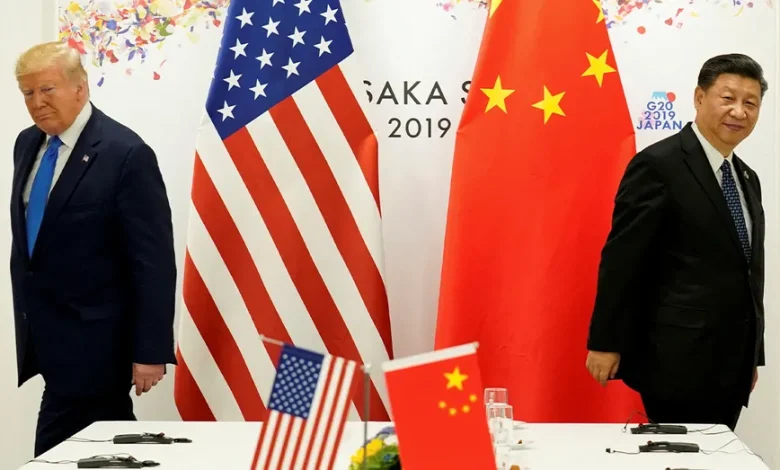China urges Trump to stop threats, blackmail over trade war

China has sharply rebuked the United States following remarks by President Donald Trump, who said it was up to Beijing to return to the negotiating table to end the ongoing trade war. In response, China accused Washington of “threatening and blackmailing,” urging the U.S. to engage in talks based on mutual respect and equality.
“If the U.S. truly wants to resolve the issue through dialogue and negotiation, it should stop exerting extreme pressure, stop threatening and blackmailing, and engage in talks with China based on equality, respect, and mutual benefit,” said Chinese Foreign Ministry spokesperson Lin Jian on Wednesday.
The dispute intensified as the Trump administration introduced sweeping new tariffs, raising levies on certain Chinese goods to as much as 245 percent. In a factsheet released Tuesday, the White House said the extreme tariff levels were “a result of retaliatory actions” from Beijing, which had imposed its own duties of up to 125 percent on U.S. products.
China’s Commerce Ministry criticized the escalating measures, stating that the U.S. had “weaponized tariffs to an utterly irrational level” and vowed to “ignore the US’s utterly meaningless tariff numbers game.” The ministry confirmed that cumulative U.S. tariffs on some Chinese exports had reached 245 percent, though it did not specify which goods were affected.
Trump initially reintroduced tariffs citing China’s alleged involvement in the fentanyl supply chain, layering them on top of earlier trade penalties. He later added a 125 percent tariff on a wide range of Chinese products in response to what Washington sees as unfair trade practices. However, the administration has granted temporary exemptions for certain tech items like smartphones and laptops.
Despite the heightened tension, China’s economy posted stronger-than-expected growth, expanding 5.4 percent in the first quarter of the year, as exporters rushed to ship goods ahead of the new tariffs.
The White House reiterated on Tuesday that the next move was China’s to make. Economists have warned that the prolonged trade conflict could have global repercussions, potentially triggering a recession.
In the meantime, diplomatic efforts continue. Japan’s envoy to Washington, Ryosei Akazawa, expressed hope for a “win-win” resolution in upcoming talks with U.S. Treasury Secretary Scott Bessent. “We will protect our national interest,” Akazawa said.
South Korea also signaled concern, with Finance Minister Choi Sang-mok expected to meet Bessent next week. “The current priority is to use negotiations to delay the imposition of reciprocal tariffs as much as possible and minimize uncertainty for Korean companies operating not only in the U.S. but globally,” Choi said.
On the corporate front, Japanese carmaker Honda announced it will shift production of its hybrid Civic model from Japan to the U.S., though it noted the move would have minimal impact on its overall production.
Asian tech markets reacted nervously, with chip stocks falling sharply after Nvidia warned it expects to lose $5.5 billion in revenue due to new U.S. licensing restrictions on its leading chip for the Chinese market.
Further escalating trade tensions, Trump on Tuesday ordered a new investigation that could lead to tariffs on critical minerals, rare earths, and products made from them—including smartphones.





